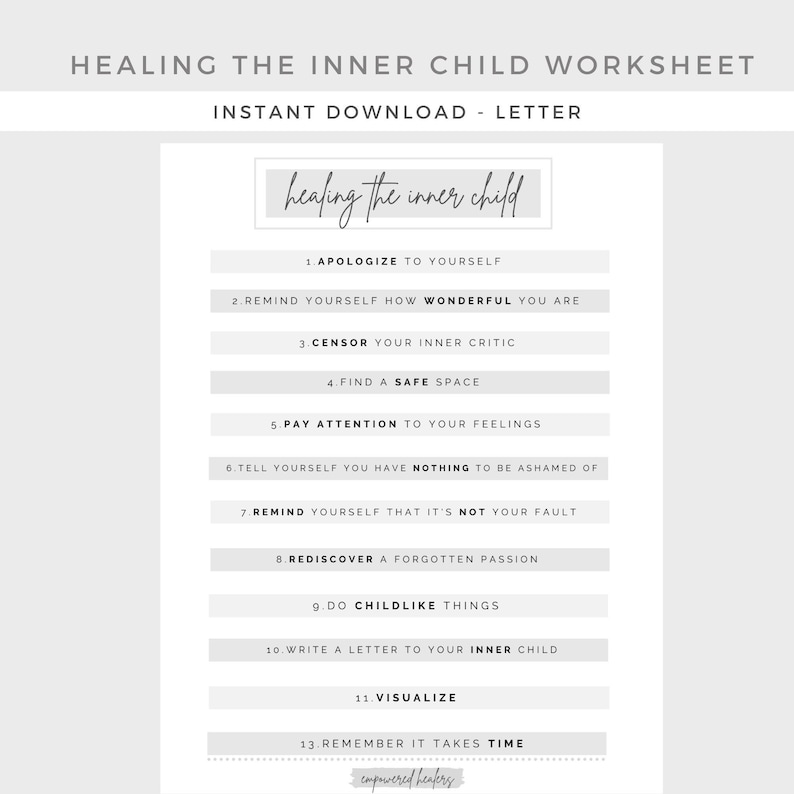Trauma Worksheets for Youth: Healing Through Activities

The journey of healing from trauma is an often complex and daunting process, especially for young people whose lives can be significantly altered by adverse experiences. Trauma worksheets for youth serve as invaluable tools to aid in the recovery process by providing structured, creative, and interactive methods to help them express and understand their feelings. These worksheets are designed to engage children and adolescents in activities that promote emotional expression, build resilience, and facilitate recovery from traumatic events.
Why Use Trauma Worksheets?

Trauma can leave youth with a multitude of emotional and psychological challenges. Symptoms might include anxiety, depression, behavioral changes, and difficulty in trust, communication, and social interaction. Here’s why worksheets tailored for trauma can be beneficial:
- Safe Emotional Expression: Worksheets offer a non-threatening way for youth to explore and express complex emotions.
- Structured Support: They provide a predictable structure which can be comforting for those dealing with the unpredictability of trauma.
- Skill Development: Through various activities, young individuals can develop coping strategies, resilience, and emotional regulation skills.
- Non-Verbal Communication: Often, trauma is hard to put into words. Visual and activity-based methods can convey feelings and thoughts where words fail.
Types of Trauma Worksheets for Youth

Here are some categories of trauma worksheets and the activities they might include:
1. Expressive Arts Worksheets

- Art Therapy: Drawing, painting, or crafting to symbolize emotions or tell a personal story.
- Music Therapy: Composing, listening, or discussing music related to their experience.
- Writing Therapy: Journaling or poetry to express thoughts or create metaphors for trauma.
2. Cognitive Behavioral Worksheets

- Thought Challenging: Exercises to identify negative thoughts and replace them with positive or realistic alternatives.
- Exposure Therapy: Gradual and controlled exposure to trauma reminders to decrease anxiety.
- Problem-Solving: Steps to address traumatic events or symptoms.
3. Mindfulness and Relaxation

- Guided Imagery for relaxation.
- Breathing Exercises to manage anxiety.
- Progressive Muscle Relaxation techniques.
4. Narrative Therapy Worksheets

- Re-writing personal narratives to highlight strengths, resilience, or hope.
- Creating a “Before and After” timeline to reflect on change.
Implementing Trauma Worksheets Effectively

Integrating worksheets into therapy or personal development involves:
- Professional Guidance: Always ensure a mental health professional oversees the use of these tools, particularly in severe trauma cases.
- Customization: Tailor worksheets to the individual’s age, interests, and trauma type.
- Consistent Use: Regular engagement with worksheets can reinforce coping skills and emotional growth.
- Positive Reinforcement: Celebrate small victories and progress to foster a sense of achievement.
- Respect Privacy: Some youth may prefer not to share their worksheets; respect their need for privacy.
✅ Note: When using these worksheets, it's essential to approach with sensitivity and respect for the individual's pace. Trauma work is about healing, not forcing recovery.
Trauma worksheets for youth are not a panacea but can be a crucial part of a comprehensive healing approach. By allowing children and adolescents to engage with their trauma in a safe, creative, and controlled environment, these tools can help them process their experiences, build resilience, and move towards a life characterized by well-being and emotional stability. Encouraging a youth to express through art, write their narrative, or engage in cognitive exercises can open doors to understanding and coping with trauma, ultimately aiding in their journey toward recovery.
Can I use trauma worksheets without professional supervision?

+
While some worksheets can be beneficial when used independently, it’s always recommended to have professional oversight, especially when dealing with complex trauma to ensure they are used appropriately and effectively.
How do I choose the right type of worksheet for my child?

+
Consider your child’s interests, age, and the nature of the trauma. Expressive arts might appeal to creative children, while cognitive worksheets could help with concrete thinking individuals. Consulting with a therapist can also guide your choice.
What if my child does not want to engage with the worksheets?

+
Do not force participation. Instead, explore why they might be reluctant and perhaps find alternative methods to help them express or cope with their feelings, or try again later with patience.
Are trauma worksheets effective for all types of trauma?

+
Worksheets can be part of a broader therapeutic approach, beneficial for many forms of trauma. However, effectiveness varies depending on the individual and the severity of the trauma. A mix of therapies often yields the best results.
How do trauma worksheets promote healing?

+
They provide a structured, engaging way to process emotions, thoughts, and experiences. By externalizing internal struggles through activities, youth can gain perspective, reduce anxiety, and develop coping skills, all contributing to healing.



